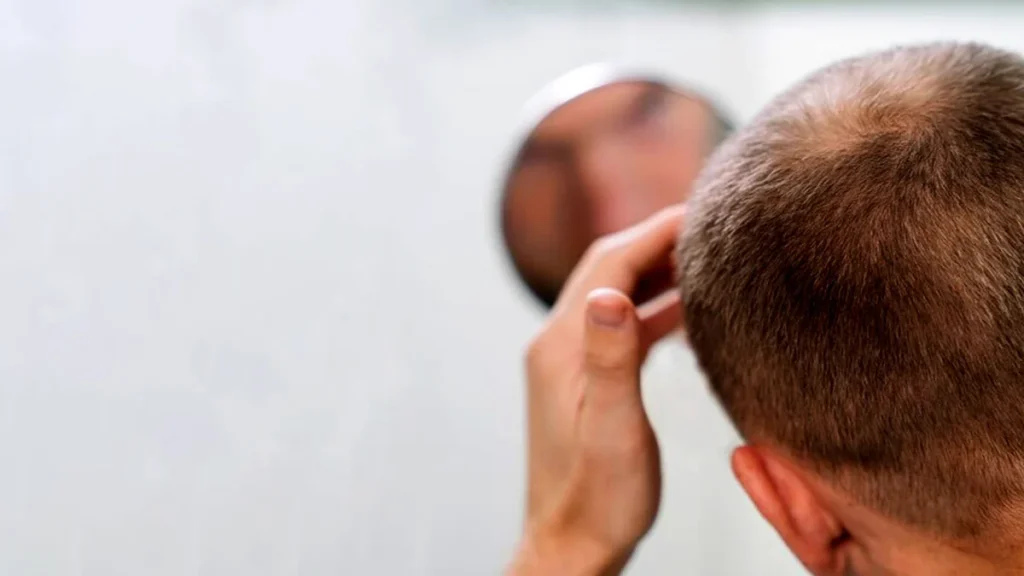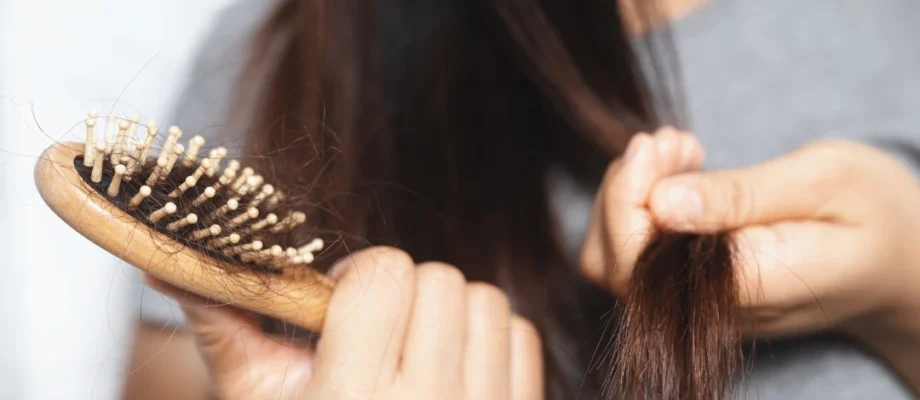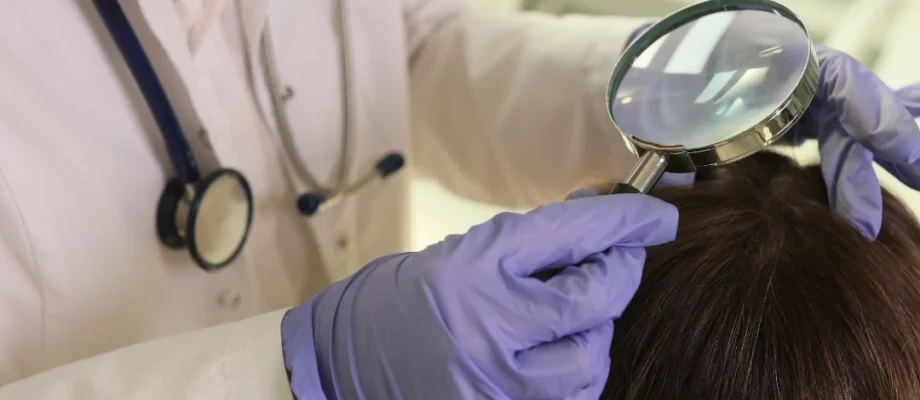
Say Goodbye To Hair Loss With These 6 Natural Remedies
Table of Contents
ToggleIntroduction
Hair thinning often leads to significant emotional distress among individuals, impacting both their external looks and internal confidence levels, regardless of gender. Understanding the common causes and impact of hair loss is crucial in finding effective remedies. While medical interventions are available, there is a growing preference for natural remedies due to their minimal side effects and potential long-term benefits.
Let’s understand some of the major remedies that affects your hair and help you control your hair loss.

1. Genetic Factors
Genetic factors play a major role in hair thinning. Having a family background of such issues raises your chances of encountering similar hair loss problems. Genetic hair fall , also known as androgenic alopecia, is influenced by hormones and hereditary factors. Identifying if genetic factors contribute to hair loss can be done through a thorough examination of family history and consulting with a dermatologist specialized in hair disorders.
2. Nutritional Remedies
Maintaining a healthy diet is crucial for keeping your hair in good condition. Certain nutrients are essential for hair growth and preventing hair loss. Biotin, known as vitamin B7, is a key vitamin for hair health. It helps strengthen the hair follicles and promotes healthy hair growth. Omega-3 fatty acids, found in sources like fatty fish and flaxseeds, not only promote hair strength but also reduce inflammation on the scalp. Additionally, incorporating iron-rich foods like spinach and lentils into your diet is vital for preventing hair fall .
3. Herbal Infusions and Topical Treatments
Many traditional herbal remedies have been used for centuries to combat hair loss. Rosemary is known for stimulating hair follicles and reducing hair loss. It can be used as an herbal infusion or added to natural shampoos. Aloe vera is another popular remedy that soothes the scalp and promotes hair growth. Regular usage of aloe vera gel or juice can help strengthen hair strands.
Green tea, when applied topically or consumed, enhances hair strength and reduces shedding. Herbal infusions and homemade topical treatments are cost-effective and provide an opportunity to experiment with different ingredients. However, it is important to exercise caution, as allergic reactions can occur in some individuals. Always conduct a patch test before applying any herbal infusion or homemade treatment to your scalp.
4. Scalp Care and Massage
The health of our scalp directly impacts hair growth. Regular cleansing and exfoliation of the scalp help remove dirt, excess oil, and dead skin cells that can clog hair follicles. Scalp massage has been proven to improve blood circulation to the scalp, promoting hair growth. Techniques such as gentle circular motions or using massage tools can stimulate the hair follicles and reduce stress. Choosing the right hair care products, like shampoos and conditioners, is also crucial for maintaining a healthy scalp. Look for products that are free from harsh chemicals and specifically formulated for your hair type.
5. Stress Management and Lifestyle Changes
Stress may lead to hair thinning by interfering with the typical cycle of hair growth. Incorporating stress management techniques into your daily routine is essential for promoting healthy hair growth. Regular exercise not only reduces stress levels but also improves blood circulation, ensuring an adequate supply of nutrients to the hair follicles.
Meditation and relaxation methods, such as deep breathing exercises or yoga, can help calm the mind and reduce stress. Maintaining a healthy work-life balance is crucial in preventing hair loss caused by chronic stress. Taking breaks, engaging in hobbies, and spending quality time with loved ones can significantly reduce stress levels and promote hair growth.
6. Essential Oils for Hair Loss
Essential oils have gained popularity for their potential benefits in promoting hair growth. Lavender oil, with its soothing aroma, has been found to increase hair follicle growth and minimize hair loss. Peppermint oil is known for its cooling effect and ability to increase blood circulation to the scalp, thereby stimulating hair growth. Rosehip oil, rich in antioxidants and essential fatty acids, nourishes the hair follicles and reduces hair loss. When using essential oils, it is important to dilute them properly with carrier oils and perform a patch test to avoid any adverse reactions.
Symptoms of Hair Loss

- Gradual Hair Thinning On Top Of The Head
- Circular Or Patchy Bald Spots
- Sudden Hair Loss
Summary
In conclusion, hair loss is a common concern, but there are natural remedies that can help address it. Understanding the causes of hair loss and incorporating these natural remedies into your routine can make a significant difference. However, consistency and patience are key, as it may take some time to see results. You can also consider visiting to hale clinics reowned for Best Multi Speciality Clinics in Mohali
FAQs
Q1: Can these natural remedies cure baldness?
A: While these natural remedies can help promote hair growth and reduce hair loss, they might not be able to cure baldness, especially if it is caused by genetic factors. It is best to consult a healthcare professional for personalized advice.
Q2: Are there any side effects of using these remedies?
A: Generally, natural remedies have minimal side effects when used as directed. However, it is important to perform patch tests and use caution, especially if you have any known allergies or sensitivities.
Q3: How much time is required to observe outcomes from using natural treatments?
A: The duration to witness outcomes can differ for each individual. It is important to be consistent with the remedies and patient, as it may take a few weeks or even months to notice significant changes in hair growth. You can always consult a dermatologist for quicker solutions.
Q4: Can women also use these remedies?
A: Absolutely! These remedies are suitable for both men and women and can be incorporated into their hair care routines.
Q5: Should I stop medical treatments for hair loss if I try these natural remedies?
A: It is crucial to consult with a doctor before discontinuing any medical treatments for hair loss. They can provide guidance on how to integrate natural remedies alongside medical interventions for a comprehensive approach to hair care.
